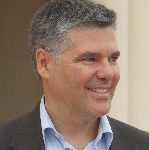- Opinion
- 24 de April de 2025
- No Comment
- 7 minutes read
Knowledge, power and education

Knowledge, power and education


Josep Oton
Knowledge and power maintain an ambivalent relationship. Frequently, the exercise of power relies on the ignorance of those subjected to it. Denying access to knowledge becomes an effective strategy for those who seek to dominate their fellow human beings. In this light, knowledge is revealed as a vital instrument in the process of human emancipation, enabling the reversal of oppressive conditions. Enlightenment thought advanced this thesis, portraying obscurantism, fraud, superstition, and deception as the allies of power.
Michel Foucault, however, questioned the supposed neutrality of truth, arguing that it is shaped by the logic of the powerful. For him, it is “a myth that Nietzsche began to dismantle by showing that behind all knowledge lies a struggle for power. Political power is not absent from knowledge; on the contrary, it is interwoven with it”.[1]
Foucault followed in the iconoclastic footsteps of Friedrich Nietzsche, who had already called into question the objectivity of knowledge: “What then is truth? A mobile army of metaphors, metonymies, anthropomorphisms; in short, a sum of human relations which have been poetically and rhetorically intensified, transferred, and embellished, and which, after long use, appear to a people as fixed, canonical, and binding: truths are illusions of which one has forgotten that they are such”.[2]
For these thinkers, power and knowledge are inextricably linked. There is no relation of power without the correlative constitution of a field of knowledge, likewise, there is no knowledge that does not presuppose—and simultaneously constitute—relations of power. In Foucault’s words: “The exercise of power perpetually creates knowledge, and conversely, knowledge produces effects of power”.[3]
Thus, from this perspective, those who exercise power impose their own knowledge—knowledge that, in turn, legitimises their authority. The cycle is closed, and the mutual reinforcement between power and knowledge is sustained. They are inseparable. There are no power relations that do not make use of knowledge, and no knowledge that stands apart from the struggle for power. As such, there can be no knowledge independent of the subject who knows, nor any knowing subject detached from relations of power.
Foucault explored this entanglement in what he described as social laboratories: the prison and the asylum—privileged spaces for the analysis of power’s mechanisms, precisely because power operates there in its most visible and unmasked form.
From sociology, these insights were subsequently extended to the field of education. Foucault himself warned: “Every educational system is a political means of maintaining or modifying the alignment between discourses, knowledge, and the powers they imply”.[4]
The diagnosis is clear. The school reflects the conflicts between social groups in a society as complex as ours. Children deemed “normal”—that is, those who adapt to the norms imposed by dominant power structures—are predisposed to succeed in the education system. In contrast, those who fail to conform to the official forms of knowledge—because they fall outside the accepted frameworks—are the most likely to experience academic failure and early school leaving.
The education system, which ought to guarantee universal access to knowledge, remains a political battleground. Power seeks to dominate it. The struggle for knowledge is, in effect, a struggle for power—hence the persistent and intense contest over education.
From a superficially critical perspective, knowledge is often denounced as a product of power, a mechanism of domination. Consequently, each student is expected to construct their own knowledge.
However, this subversive stance, which casts suspicion on the very idea of knowledge, ultimately fosters the proliferation of false truths and thereby deepens ignorance and manipulation.
Simone Weil, who witnessed the perversions of Nazi propaganda long before the rise of the internet, maintained that “protection against suggestion and error” is one of humanity’s fundamental needs. She condemned the press and radio of her time for spreading “not only false statements, but also deliberate and tendentious omissions”. The consequence, then as now, is that “the public distrusts newspapers, but that distrust offers no protection. Knowing that the press contains both truths and falsehoods, people divide the information between the two categories at random, according to their preferences. In this way, they remain vulnerable to error”.[5] Her words apply all too well to today’s social media.
Weil’s reflections often align with those of Hannah Arendt. In her writings on lying as a political strategy, Arendt argues that the goal of constant lying is not to persuade people to believe in falsehoods, but rather to ensure that they cease to believe in anything at all.[6]
The current educational context raises troubling questions. Could the obstruction of knowledge transmission be a refined strategy of power, aimed at denying large segments of society access to learning so they may be more easily subdued? Are today’s pedagogical theories merely plausible opinions that have been elevated to the status of orthodoxy? To paraphrase Foucault: are so many “individualised learning programmes” simply mechanisms of power designed to bind individuals to identities assigned for the benefit of authority?
___
[1] Michel Foucault, La verdad y las formas jurídicas, Gedisa Publishers, Barcelona 1988, p. 59
[2] Friedrich Nietzsche, Sobre verdad y mentira en sentido extramoral, Cap. I
[3] Michel Foucault, Microfísica del poder, La Piqueta Publishers, Madrid 1980, p.99
[4] Michel Foucault, Vigilar y castigar, Siglo XXI Publishers, México 2008, p. 37
[5] Simone Weil, Echar raíces, Trotta Publishers, Madrid 1996, pp.48-50
[6] Hanna Arendt, La mentira en la política, Alianza editorial, Madrid 2022, p. 67
Source: educational EVIDENCE
Rights: Creative Commons

